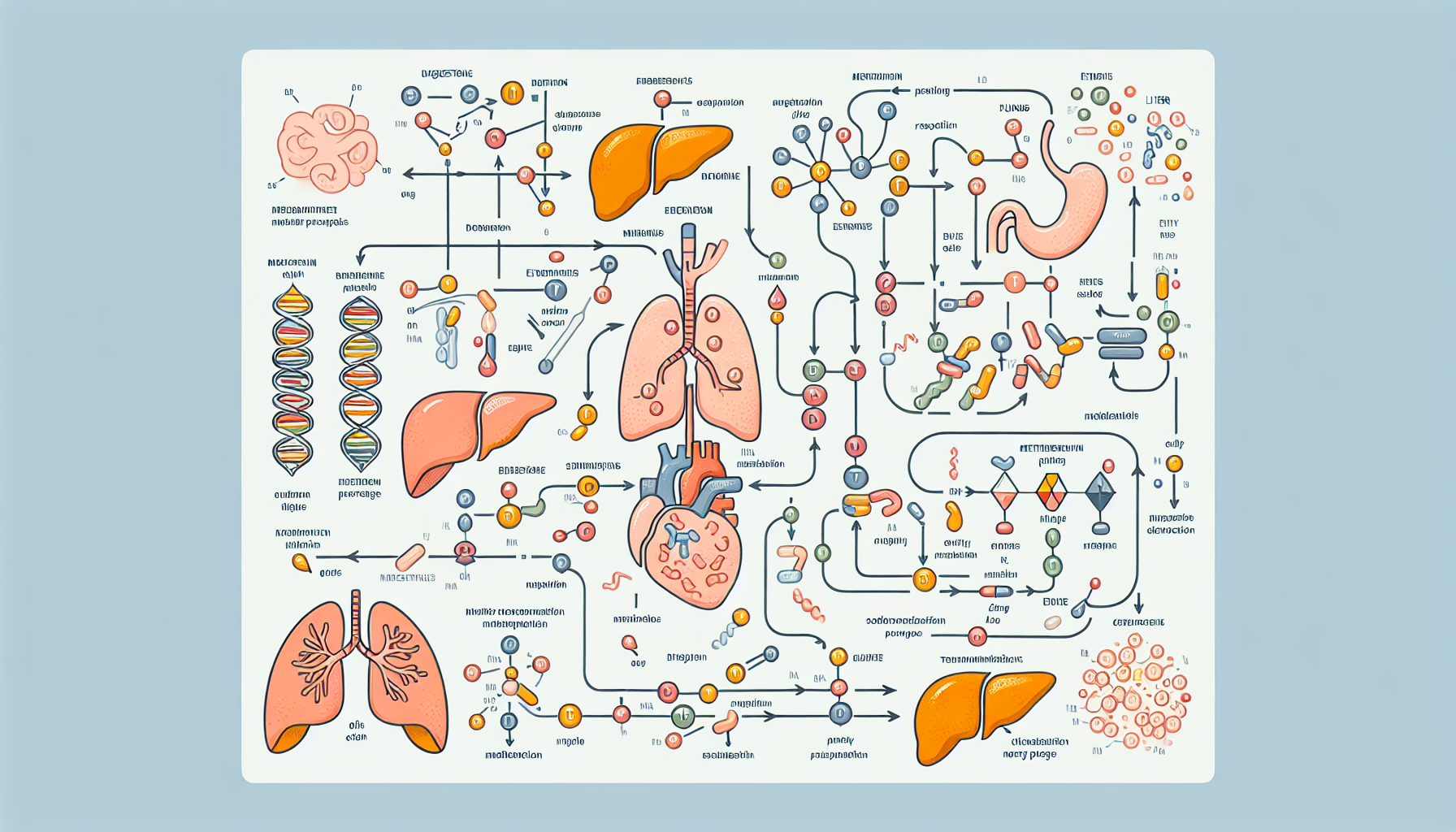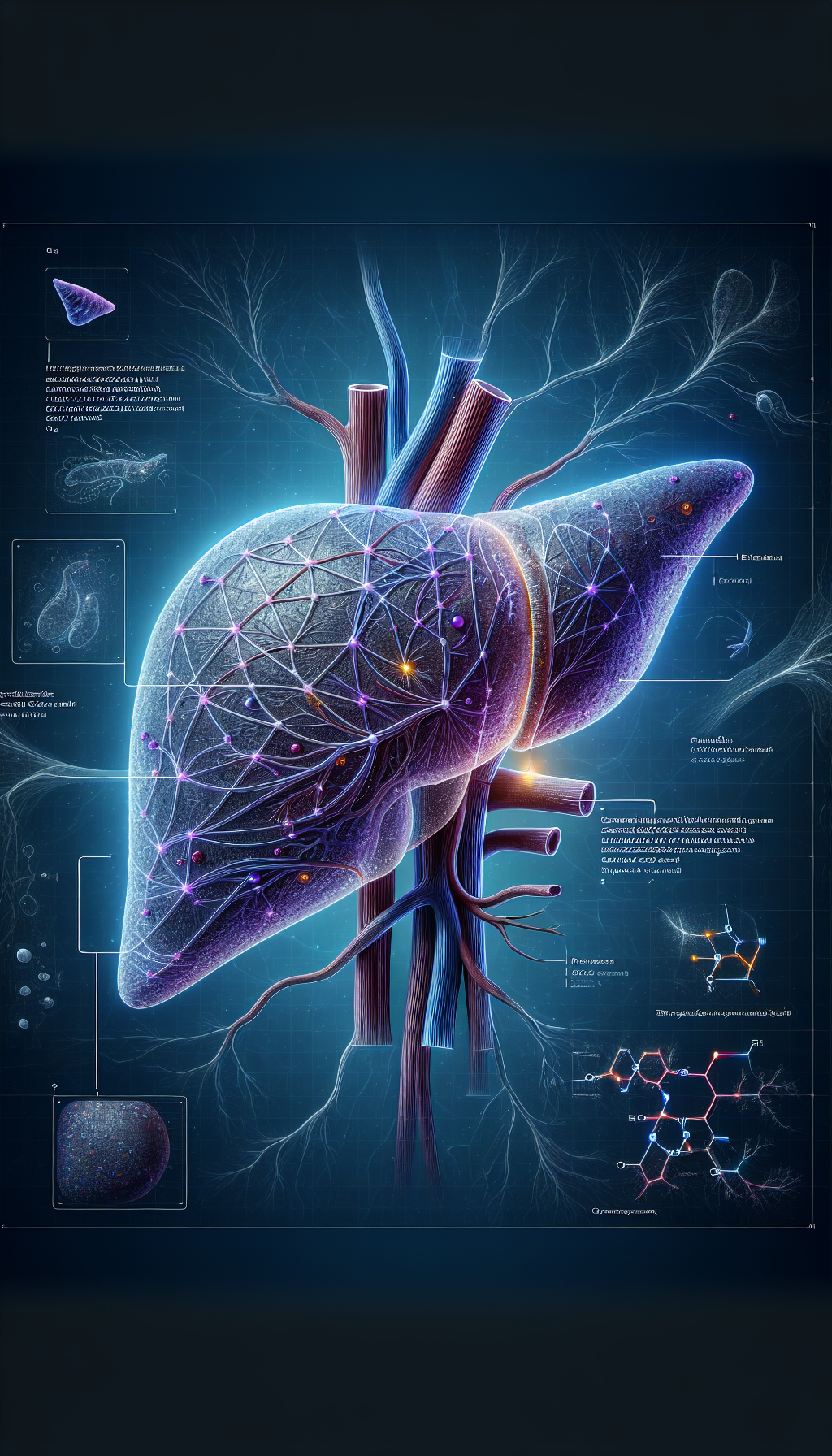Metabolism is the complex network of chemical reactions that take place in the body’s cells. It’s a vital process that helps convert food and drugs into energy and building blocks for growth and repair, and it’s also responsible for the elimination of nitrogenous wastes. When it comes to medications, understanding metabolic pathways is crucial, as these pathways determine how a drug is processed in the body, how it will affect different organs, and how it is eventually eliminated. This article delves deep into the significance of metabolic pathways in medication, providing insights and practical information that can help individuals better understand how their bodies handle drugs.
The Role of Metabolism in Drug Efficacy
When a drug is administered, it doesn’t work in isolation. It undergoes metabolic processes primarily in the liver, where enzymes transform these substances into metabolites. This transformation can have several effects: it can activate a prodrug into its active form, alter the drug’s efficacy, or detoxify and prepare the substance for excretion from the body.
The liver’s cytochrome P450 enzymes play a significant role in drug metabolism. Variations in these enzymes among individuals can lead to different metabolic rates, which explains why the same drug can have varying effects from one person to another. Understanding these variations is part of the field of pharmacogenomics, which studies how genes affect a person’s response to drugs. This knowledge can lead to personalized medicine and supplement use, allowing for treatments that are specifically tailored to an individual’s genetic makeup.
Metabolic Pathways and Patient Safety
Metabolic pathways are not just about efficacy; they are also about safety. Certain drugs can be toxic to the liver if not metabolized properly, which can lead to adverse drug reactions (ADRs). For example, the medication isoniazid, used to treat tuberculosis, can cause liver toxicity in some patients due to differences in metabolic pathways. Understanding these pathways enables healthcare providers to predict potential risks and adjust dosages accordingly.
Moreover, drug interactions are a significant concern. When two drugs are metabolized by the same pathway, they can compete with each other, potentially leading to an accumulation of one or both of the drugs to toxic levels. Understanding drug interactions and how to avoid them is essential in preventing such complications.
Drug Metabolism and Chronic Conditions
Patients with chronic conditions often require multiple medications, which increases the complexity of managing metabolic pathways. For instance, individuals with cardiovascular disease may be on a regimen that includes blood thinners, beta-blockers, and cholesterol-lowering drugs, all of which have distinct metabolic pathways. The role of medication in managing cardiovascular health highlights the importance of closely monitoring these patients to avoid drug interactions and side effects.
External Resources on Metabolic Pathways
To further your understanding of metabolic pathways and their implications for medication use, here are some niche resources that provide valuable information:
- The Human Cytochrome P450 (CYP) Allele Nomenclature Database: A database detailing the genetic variants of the cytochrome P450 enzymes that are critical for drug metabolism.
- The Pharmacogenomics Knowledgebase (PharmGKB): An integrated resource that provides information about how genetic variation affects drug responses.
- Clinical Pharmacology & Therapeutics: Pharmacogenomics: A journal that publishes cutting-edge research on the genetic determinants of drug response.
Practical Considerations for Medication Use
Given the complexity of metabolic pathways, there are several practical considerations to keep in mind when taking medication:
- Always inform your healthcare provider about any other medications, supplements, or herbal products you are using to avoid harmful drug interactions.
- Be aware of any pre-existing liver conditions that may affect the metabolism of drugs.
- Note that lifestyle factors, such as diet and exercise, can influence drug metabolism. Understanding the influence of lifestyle on medication and supplement use can help in optimizing treatment outcomes.
- Genetic testing for metabolic enzymes may be recommended in some cases to tailor medication choices and dosages.
The Future of Drug Metabolism Research
Research in drug metabolism is ongoing, with new discoveries frequently emerging. Advances in technology, such as high-throughput screening and computational modeling, are aiding scientists in predicting metabolic pathways more accurately. This research is paving the way for more effective and safer medications with fewer side effects.
The development of drugs that can target specific metabolic pathways is another exciting area of research. These targeted therapies could offer more personalized treatment options for patients, reducing the trial-and-error approach often associated with prescribing medication.
Conclusion
Understanding the importance of metabolic pathways in medication is key to optimizing drug efficacy and ensuring patient safety. As research in this field continues to evolve, we can expect to see more personalized approaches to medication management, with treatments being tailored to the unique metabolic profiles of individual patients. By staying informed and working closely with healthcare providers, patients can navigate the complexities of drug metabolism to achieve the best possible health outcomes.



